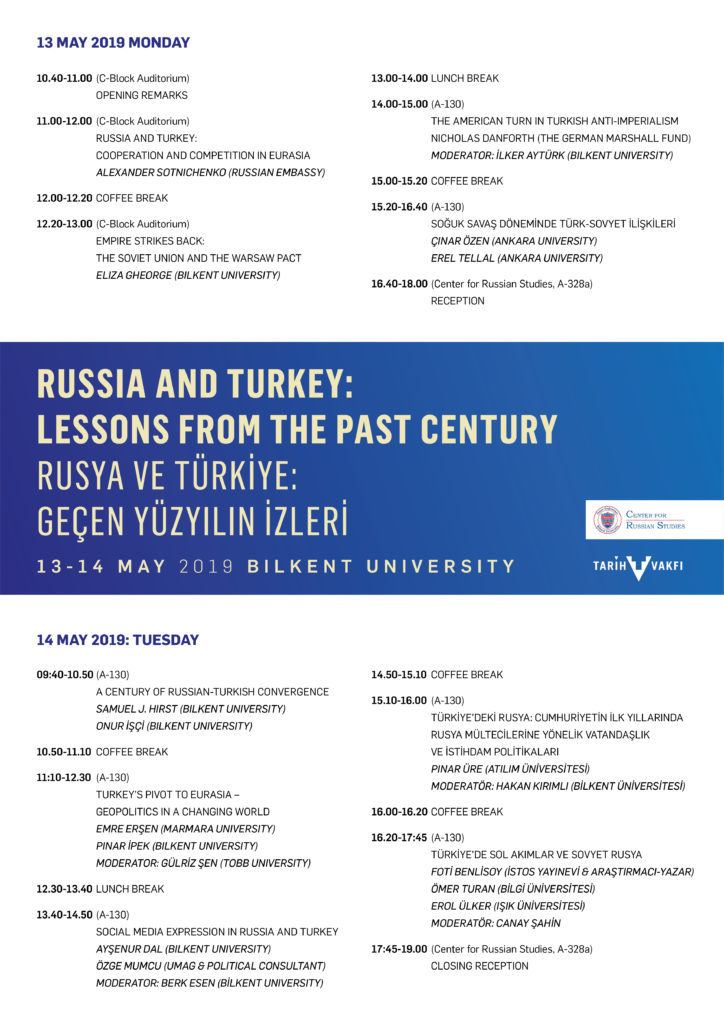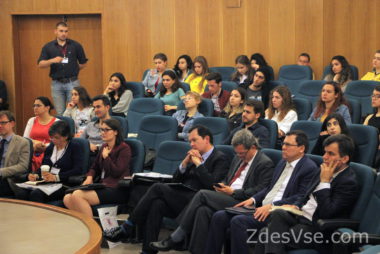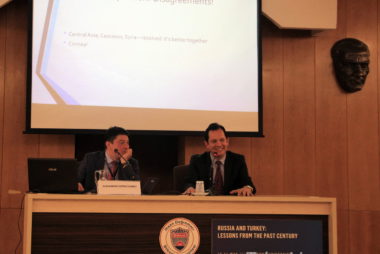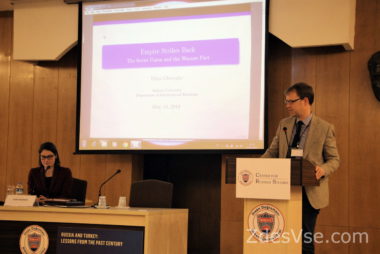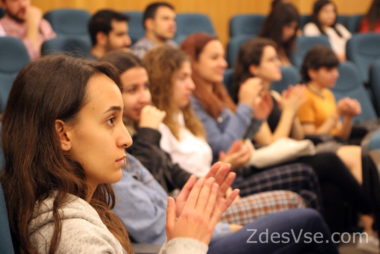13-14 May 2019 – Over the course of two days, CRS hosted a conference titled “Russia and Turkey: Lessons from the Past Century.” The event was co-organized with Tarih Vakfı as part of a number of events which included a lecture series in İstanbul in March and April that also explored the interconnected history of Russia and Turkey.
The CRS-hosted conference was organized around the idea that 2019 marks almost a century of relations between Moscow and Ankara. The first diplomatic correspondence between the successors of the Russian and Ottoman empires dates from 1920, but it was the establishment of a new international order in 1919 that laid the foundations for a new relationship between Russia and Turkey. The conference featured a number of sessions that addressed the formative interwar years. A roundtable with Foti Benlisoy, Erol Ülker, and Ömer Turan examined the institutional and ideological connections that tied the Turkish Left to the Bolshevik Revolution and the Soviet Union; in a separate session, Pınar Üre spoke about White Russian immigrants in the Turkey and their place in early Republican history.
Nicholas Danforth, Eliza Gheorghe, Erel Tellal, and Çınar Özen all addressed the politics of the Cold War and all showed processes that transcended the capitalist-communist binary that divided Turkey and the Soviet Union from 1945-1991. Nick showed that a consistent anti-imperialism shaped Turkish understandings of Arab nationalism in the 1950s; Eliza argued that the Warsaw Pact’s negotiation of nuclear deterrence shows the transformation of Moscow’s politics in Eastern Europe from an imperial to a hegemonic alliance; and Erel and Çınar debated the moments in post-World War II Soviet-Turkish interactions that created an initial estrangement but ultimately allowed for a rapprochment in the late-1950s and early-1960s.
Onur İşçi and Sam Hirst co-delivered a talk that began with Soviet-Turkish convergence in 1919-1920 and traced a consistent economic cooperation up to the present day, thus bringing together the history-focused elements of the conference with those that were devoted to current topics.
The sessions on Russia and Turkey today looked both at relations between the two countries as well as comparable processes in domestic politics. Alexander Sotnichenko opened the conference with a talk that offered a Eurasian framework for understanding Russian-Turkish interactions. Emre Erşen and Pınar İpek presented materials from a new book on the Eurasian pivot in Turkish foreign policy, with Emre highlighting the significance of Eurasia’s rising powers for Turkey and Pınar arguing that appreciation of cognitive biases help us to explain energy policies that have produced an asymmetric relationship between Ankara and Moscow. Özge Mumcu Aybars and Ayşenur Dal spoke about Turkey and Russia respectively, but both pointed to similar processes in social media usage.
CRS is grateful to everyone whose participation made this such a rewarding event. In addition to the presenters, İlker Aytürk, Berk Esen, Hakan Kırımlı, Canay Şahin, and Gülriz Şen moderated and enriched the discussions. Ece Engin went above and beyond the call of duty, and was helped by dedicated graduate students from the International Relations department.
For more photographs from the conference, please click here.


